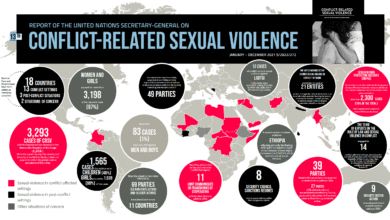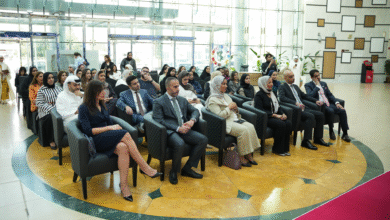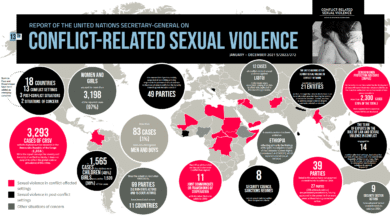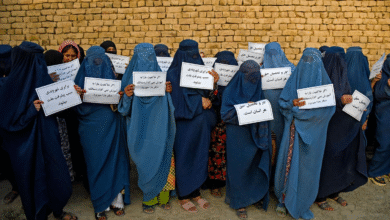End Female Genital Mutilation: Activism in Djibouti
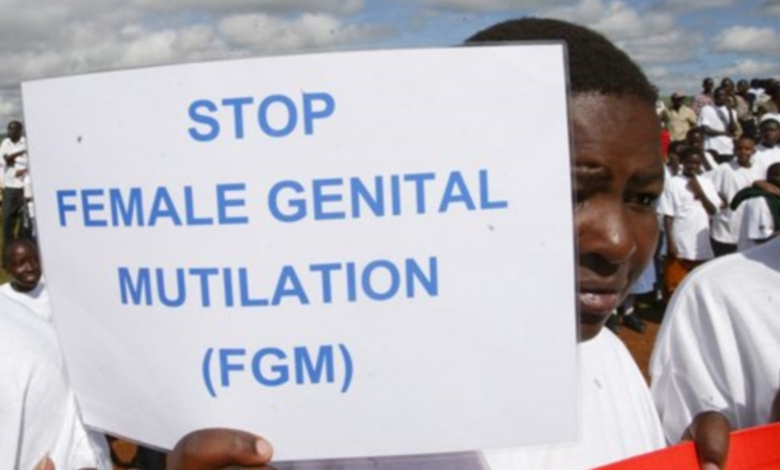
Ending female genital mutilation (FGM) is not merely a public health issue; it is a crucial aspect of women’s rights and empowerment across the globe. With an estimated 230 million women and girls affected, the impacts of this harmful cultural practice are both profound and lifelong, shaking the very foundations of women’s health advocacy. Activists in Djibouti, like Hawa’a Mohamed Kamil, are tirelessly working to raise FGM awareness and encourage communities to abandon such traditions. The call for change has never been more urgent, as nearly 4.4 million girls are projected to be at risk this year alone. By empowering women, challenging harmful practices, and fostering open dialogue, we can pivot toward a future where girls live free from the shackles of FGM and flourish as leaders in their communities.
Known by various terms including female circumcision, female cutting, and genital mutilation, the practice of altering or injuring female genitalia persists in numerous cultures worldwide. This form of mutilation poses significant threats to women’s health and psychological well-being, making it vital to address these issues within a framework of women’s empowerment and gender equality. In Djibouti, local leaders and activists are increasingly standing against these traditions, striking a balance between respecting cultural heritage and advocating for the rights of women and girls. The importance of FGM awareness and education cannot be overstated, as it creates a ripple effect in communities, encouraging a shift towards healthier practices. As we move forward, collaboration among grassroots movements, governmental organizations, and international bodies will be essential in the fight to eradicate this harmful practice.
The Importance of FGM Awareness in Djibouti
Raising awareness about female genital mutilation (FGM) is crucial in combating this harmful cultural practice. In Djibouti, activists like Hawa’a Mohamed Kamil and Khadija are on the front lines, educating their communities on the dangers of FGM. Their efforts go beyond merely informing; they aim to spark a cultural shift that prioritizes women’s health and empowerment. By engaging both men and women in discussions, they highlight the community’s role in eradicating FGM, ensuring that the message resonates with a broader audience. This collective awareness is vital as it not only informs but also creates a supportive environment where women can stand against these practices without fear of ostracism.
The impact of this awareness-raising campaign has been profound in communities across Djibouti. By addressing misconceptions and highlighting the health consequences of FGM, such as severe trauma and lifelong complications, these activists empower families to reconsider their traditions. Efforts are also geared towards involving youth, as seen in schools where lessons include discussions on girls’ rights and health. Through education, the new generation is encouraged to advocate for change, illustrating that opposition to FGM is not just a women’s issue; it’s a community-wide initiative that can lead to transformation for future generations.
Challenging Harmful Cultural Practices
The journey toward ending harmful cultural practices such as FGM involves persistent dialogue and courage from local activists in Djibouti. They face significant challenges, including backlash from community members who are deeply entrenched in traditional beliefs. As Hawa’a and Khadija have experienced, their advocacy efforts have often been met with skepticism and ostracization. However, by formulating grassroots movements and utilizing platforms like community sermons and local media, they are able to challenge these harmful norms effectively. Their personal experiences as FGM survivors lend credibility to their message and foster trust within their communities.
In addition, the importance of engaging men as allies in this fight cannot be overstated. Educators like Ibrahim illustrate how community leaders can influence public perception. By reshaping conversations around the values that dictate gender roles and women’s health, they contribute to an environment that increasingly favors the abandonment of FGM. Such collaboration is essential in altering societal norms, as it empowers both men and women to work together toward a shared vision of health and safety for girls.
Women’s Health Advocacy Against FGM
Women’s health advocacy plays a pivotal role in the fight against FGM in Djibouti. Organizations like UNFPA and local networks are collaborating to create an ecosystem where women’s health is prioritized, and the dangers of FGM are widely disseminated. Advocacy efforts involve training community leaders, healthcare professionals, and educators to understand and stand against the implications of FGM. This holistic approach addresses not just the physical aspects but also the psychological scars that often accompany this practice, ensuring a comprehensive understanding of its impact on women’s lives.
Moreover, female activists are increasingly becoming voices for change within their communities, as seen with figures like Hawi Mohammed. By sharing their personal testimonies and the experiences of pain, trauma, and recovery, they foster empathy and understanding. This narrative-driven approach not only validates the struggles of survivors but also informs the community about the real consequences of FGM. As women’s health advocacy gains momentum, the clear message resonates: protecting girls from FGM is not just a matter of tradition but a fundamental human right.
The Role of Djibouti Activists in Ending FGM
Djibouti activists are at the forefront of the movement to end FGM, and their work exemplifies the power of grassroots action in challenging longstanding traditions. Individuals like Hawa’a and Khadija exemplify this commitment by dedicating their time to educate others about the perils of FGM. Their lived experiences allow them to connect with victims and families, helping to dismantle the myths surrounding the necessity of this harmful practice. This grassroots approach is crucial, as it fosters trust and understanding within the communities they serve.
Additionally, the coalition of local activists and international organizations enhances their capability to address FGM effectively. Programs initiated by UNFPA and other support networks provide vital training and resources that empower these activists. As they work collaboratively, these efforts build a formidable network of defenders against FGM, making the case for change more resilient and far-reaching. The synergy created through such partnerships ensures that the movement to eradicate FGM is not just a local initiative but part of a broader global effort.
Female Empowerment and Community Engagement
Female empowerment is intrinsically linked to the movement against FGM in Djibouti, as empowering women leads to stronger advocacy for their rights and health. Activists are working tirelessly to ensure that women understand their rights and the dangers associated with FGM. Through workshops and community meetings, they are spreading awareness and fostering discussions that directly challenge traditional beliefs. By encouraging women to stand up for their health and that of their daughters, they create a ripple effect that strengthens the community’s commitment to change.
Furthermore, engaging young girls and women in these dialogues helps to build a new generation that is educated and resolute against such cultural practices. The importance of female empowerment is underscored by stories of individuals like Ibrahim, who models progressive thinking about women’s health to his students. By integrating this ethos into education, future leaders emerge from the youth, equipped with a strong belief in equality and health. Consequently, the focus on female empowerment is transforming Djiboutian society, nurturing a culture that values women’s rights and well-being above outdated harmful practices.
The Importance of Collaborative Movements to End FGM
Collaborative movements are critical in the fight to end FGM, as they encourage various sectors of society to unite for a common goal. The UNFPA’s emphasis on building alliances highlights the necessity of involving diverse community members, including youth, parents, and religious leaders. This collective advocacy can significantly amplify efforts to challenge harmful practices and promote healthier cultural norms. Each stakeholder brings unique perspectives and resources that can enhance the effectiveness of campaigns against FGM.
By fostering these collaborations, activists can address the complex socio-cultural dynamics that perpetuate FGM. Engagement of influential community figures, such as religious leaders advocating against the practice, can sway public opinion and reshape societal norms. As seen through the experiences of local activists, when communities come together with a shared vision for women’s health and empowerment, the momentum for change grows exponentially, making the elimination of FGM a tangible collective achievement.
Challenges Faced by FGM Advocates
Advocates working to end FGM face numerous challenges in their quest for change. Societal resistance often arises from deep-rooted cultural practices and beliefs that uphold FGM as a tradition. Activists like Hawa’a and Khadija have shared their stories of ostracism, illustrating the personal toll this can take. Fear of losing social standing or support from family can deter individuals from speaking out or advocating against FGM, making it essential for movements to develop robust support systems for these brave advocates.
Moreover, misinformation and lack of awareness about the health risks associated with FGM complicate the dialogue. Activists must work tirelessly to educate their communities on the severe implications of FGM, from physical complications to psychological trauma. This educational effort requires patience and persistence, as change cannot happen overnight. By consistently promoting accurate information, these advocates slowly but surely shift societal perceptions and pave the way for the eventual abandonment of harmful practices.
The Effect of Education on Combatting FGM
Education serves as a formidable tool in the fight against FGM, providing individuals with the knowledge and critical thinking skills necessary to challenge harmful practices. In Djibouti, educators like Ibrahim incorporate lessons about girls’ rights and health into their curriculum, creating an informed youth that understands the implications of FGM. This forward-thinking approach not only protects current generations of girls but empowers them to be advocates for change as they grow. The more educated children are on the issues surrounding FGM, the less likely they are to accept it as a norm.
Moreover, educational initiatives foster open dialogue within families and communities, allowing for discussions about women’s health that may have been previously considered taboo. By integrating these conversations into school settings, children carry this awareness back home, creating a ripple effect of knowledge that challenges preexisting norms. Ultimately, education facilitates the transformation of societal attitudes, fostering an environment that values the health and well-being of girls, which is essential in the fight to end FGM.
A Vision for the Future: Ending FGM by 2030
The vision for a future free from female genital mutilation (FGM) is shared by activists and organizations across the globe, aiming for complete eradication by 2030. This target emphasizes the need for urgent action and persistent efforts from all levels of society. The movements in Djibouti, driven by local activists, represent a microcosm of the global struggle against FGM, showcasing resilience and commitment to change. As the UNFPA states, it is imperative that governments, community leaders, and individuals unite in this fight, ensuring that girls grow up free from this harmful practice.
To achieve this ambitious goal, collaborative initiatives and continued awareness-raising campaigns will be vital. The involvement of multiple stakeholders—including health care providers, educational institutions, and local communities—boosts the momentum necessary to bring about substantive change. With continued efforts and unwavering dedication to advocating for women’s health and rights, there lies hope that the practice of FGM can be relegated to history by the deadline of 2030, allowing future generations to flourish unharmed.
Frequently Asked Questions
What is being done to end female genital mutilation in Djibouti?
Activists in Djibouti, like Hawa’a Mohamed Kamil and Khadija, are actively campaigning to end female genital mutilation (FGM) through education and community outreach. They work with organizations like UNFPA to raise FGM awareness, targeting both men and women to change cultural norms and prevent future generations from undergoing this harmful practice.
How does female genital mutilation impact women’s health?
Female genital mutilation (FGM) has severe implications for women’s health, including chronic pain, complications during childbirth, and increased risk of infections. Activists highlight the physical and psychological scars that survivors like Hawa’a Kamil endure, underlining the urgent need for women’s health advocacy to protect future generations from such harmful cultural practices.
What role do men play in ending female genital mutilation?
Men play a critical role in the fight to end female genital mutilation (FGM). Educators like Ibrahim engage boys and young men in discussions about the rights and health of girls. By promoting female empowerment and advocating against FGM, they help create a supportive environment for changing attitudes towards this harmful practice.
Why is community involvement essential in ending female genital mutilation?
Community involvement is essential for effectively ending female genital mutilation (FGM) because local beliefs and customs heavily influence the practice. Activists in Djibouti stress the importance of having conversations with families, religious leaders, and community members to foster understanding and prioritize girls’ health and freedom from FGM.
How can people support the efforts to end female genital mutilation worldwide?
Supporting global efforts to end female genital mutilation (FGM) can be achieved through raising awareness, advocating for women’s health rights, and contributing to organizations that combat FGM. Engaging in open discussions, educating others, and participating in campaigns on International Day of Zero Tolerance for FGM also advance female empowerment and highlight the importance of abolishing this harmful practice.
| Key Points |
|---|
| Hawa’a Mohamed Kamil shares her traumatic experience with FGM and advocates against it in Djibouti. |
| FGM is recognized as a human rights violation affecting over 230 million women globally. |
| The practice has seen a decline in some areas, but 4.4 million girls are still at risk in 2025. |
| Activists like Khadija and Ibrahim work in their communities to promote awareness and change perceptions. |
| Women’s groups and local leaders are crucial in fostering discussions and challenging traditions surrounding FGM. |
| On 6 February, the International Day of Zero Tolerance for FGM emphasizes global action towards ending this practice. |
Summary
To achieve the goal of ending female genital mutilation (FGM), global awareness and community engagement are crucial. Activists like Hawa’a, Khadija, and Ibrahim are paving the way for future generations by informing their communities about the dangers of FGM. As the International Day of Zero Tolerance approaches, it is vital for everyone to act together in fostering education and creating a supportive environment where girls can grow up free from harm. Collaboration among local leaders, families, and the international community is essential to eradicate this harmful practice by 2030.

